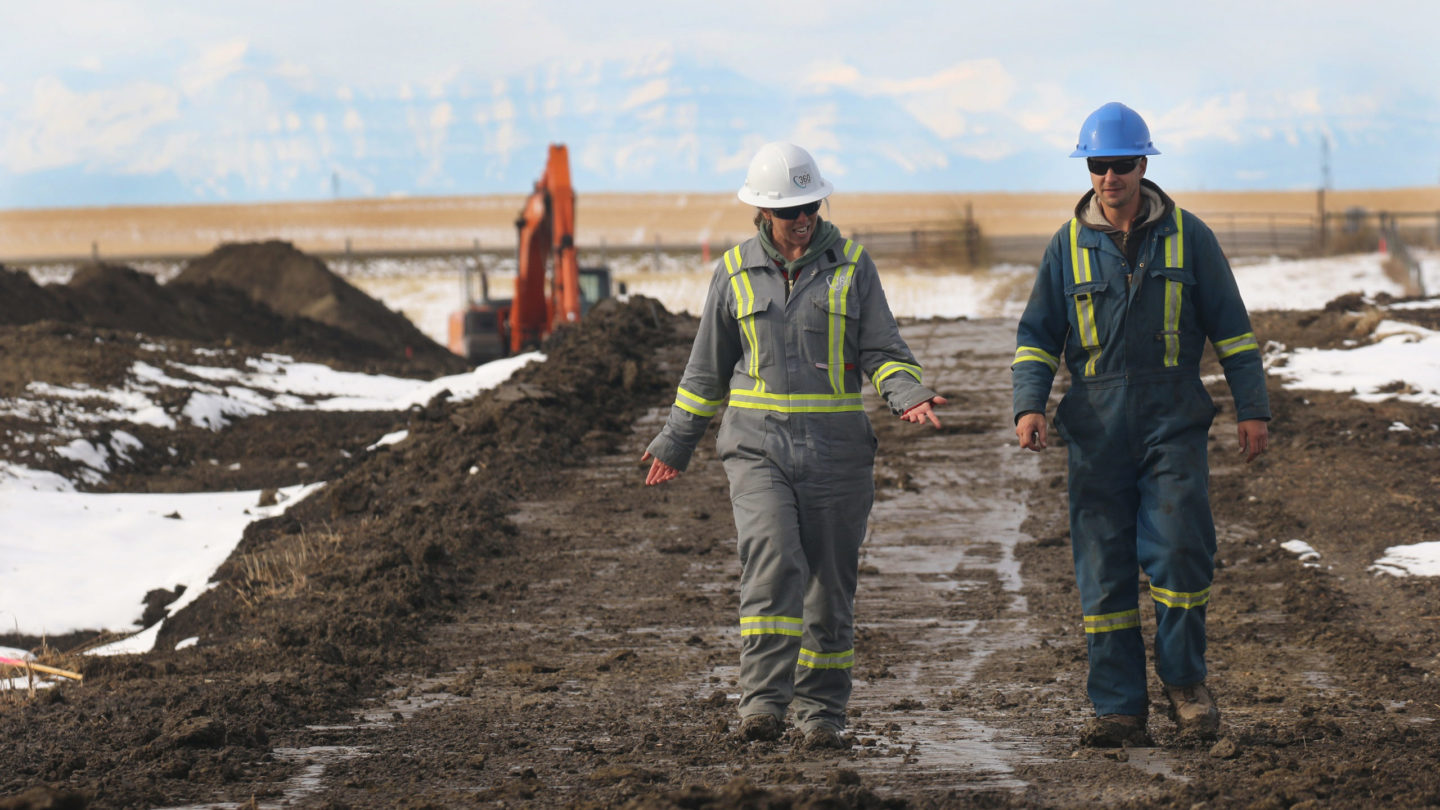Low Levies On Alberta Oil Companies Leave Orphan Wells Unfunded

Table of Contents
Insufficient Levies and the Growing Problem of Orphan Wells in Alberta
The current levy system in Alberta, designed to fund the reclamation of abandoned oil and gas wells, is demonstrably insufficient. This shortfall is leading to a dramatic increase in the number of orphan wells – wells left behind by companies unable or unwilling to pay for their proper abandonment. These inactive wells pose significant environmental and financial risks.
-
Shortcomings of the Current System: The existing levy system relies on a per-well fee that many experts argue is too low to cover the actual costs of wellsite reclamation and environmental remediation. This underfunding is exacerbated by fluctuating oil prices and the historical practice of low regulatory oversight.
-
Escalating Costs: The number of orphan wells in Alberta is growing rapidly, and the cost of cleaning them up is exponentially higher than addressing the issue proactively. Estimates for remediation costs run into billions of dollars, a burden increasingly likely to fall on Alberta taxpayers if the current trajectory continues.
-
Environmental Impact: Unclaimed wells release harmful greenhouse gases, primarily methane, a potent contributor to climate change. Furthermore, they can contaminate groundwater and soil with various toxins, posing serious threats to both human health and ecological integrity. This environmental damage necessitates costly cleanup efforts, further increasing the financial burden.
-
Taxpayer Burden: The failure to adequately fund orphan well cleanup directly translates to a massive financial burden on Alberta taxpayers. The province will eventually be forced to shoulder the responsibility for remediation, diverting crucial funds from other essential public services.
The Role of Alberta's Energy Regulator in Addressing Orphan Wells
The Alberta Energy Regulator (AER) plays a critical role in overseeing the oil and gas industry and preventing the creation of orphan wells. However, its current regulatory framework and enforcement mechanisms face significant challenges.
-
Regulatory Framework Effectiveness: While the AER has regulations in place, their effectiveness is debatable given the growing number of orphan wells. The enforcement of existing regulations appears inadequate in preventing companies from abandoning wells without proper reclamation.
-
Challenges in Enforcement and Levy Collection: The AER faces difficulties in effectively enforcing regulations and collecting sufficient levies from oil companies. This includes tracking down responsible parties, pursuing legal action, and dealing with bankrupt or insolvent companies.
-
AER Response and Potential Improvements: The AER has acknowledged the orphan well crisis and is working to improve its regulatory framework. However, more comprehensive and stringent measures, coupled with improved enforcement capabilities, are needed to address the problem effectively. This includes adopting a more proactive approach to identifying and addressing potentially problematic wells.
-
Potential Conflicts of Interest: Balancing the need for environmental protection with the interests of the oil and gas industry presents a significant challenge for the AER. Ensuring genuine regulatory independence is crucial to preventing potential conflicts of interest that could undermine effective enforcement.
Comparing Alberta's Levies with Other Jurisdictions
Benchmarking Alberta's approach against international best practices reveals significant shortcomings. Many other jurisdictions with significant oil and gas production have implemented more robust and effective funding models for well abandonment.
-
Comparative Analysis: A comparison with provinces like Saskatchewan or countries like Norway, with their stronger regulatory frameworks and funding mechanisms, highlights Alberta's weaknesses. These jurisdictions often have higher levies, more stringent enforcement, and better preventative measures.
-
Effective Funding Models: Successful models often include a combination of higher per-well levies, bonding requirements, and financial assurance mechanisms to guarantee funding for wellsite reclamation. These models prioritize proactive environmental protection over reactive cleanup.
-
Minimizing Orphan Well Creation: Other jurisdictions have implemented successful strategies to minimize orphan well creation, including stricter licensing procedures, more rigorous wellsite inspections, and financial incentives for responsible well abandonment.
Potential Solutions and Policy Recommendations to Fund Orphan Well Cleanup
Addressing the orphan well crisis requires a multi-pronged approach that includes increased funding, stronger regulations, and greater industry accountability.
-
Increased Levies and Industry Contributions: Significantly increasing the per-well levy and requiring larger upfront financial assurances from oil companies are essential steps. This would provide a more reliable funding stream for wellsite reclamation and environmental remediation.
-
Government Funding and Public-Private Partnerships: Government subsidies might be necessary to cover the existing remediation backlog. Public-private partnerships could also help leverage private sector expertise and resources to expedite cleanup efforts.
-
Incentivizing Responsible Well Abandonment: Incentives, such as tax breaks or expedited permitting for companies that demonstrate responsible well abandonment practices, can encourage proactive environmental stewardship.
-
Economic Benefits of Proactive Remediation: Investing in proactive remediation is not just an environmental imperative; it's also economically sound. Early intervention prevents the escalating costs of long-term environmental damage and protects Alberta's reputation as a responsible energy producer.
Conclusion
The orphan well crisis in Alberta is a serious environmental and economic threat. The current system of low levies on oil companies is demonstrably inadequate, leaving a massive environmental liability unfunded and shifting the financial burden onto Alberta taxpayers. The consequences of inaction are severe, leading to environmental damage and significant future costs. We urgently need stronger regulations, increased levies, and greater industry accountability to address this critical issue. Demand stronger regulations for orphan well funding, support increased levies on Alberta oil companies, and hold the Alberta government accountable for addressing this critical issue. Contact your elected officials and advocate for sustainable solutions that protect our environment and Alberta taxpayers from the substantial costs of orphan well cleanup.

Featured Posts
-
 Nike Dunk Sale 52 Off At Revolve Shop Now Before They Re Gone
May 29, 2025
Nike Dunk Sale 52 Off At Revolve Shop Now Before They Re Gone
May 29, 2025 -
 Hujan Masih Turun Di Jawa Timur Prediksi Cuaca 24 Maret
May 29, 2025
Hujan Masih Turun Di Jawa Timur Prediksi Cuaca 24 Maret
May 29, 2025 -
 Opmerkelijk Gerucht Psv Zoekt Nieuwe Trainer Legende In Beeld
May 29, 2025
Opmerkelijk Gerucht Psv Zoekt Nieuwe Trainer Legende In Beeld
May 29, 2025 -
 How Big Is Red Death Compared To Toothless New Poster Shows The Difference
May 29, 2025
How Big Is Red Death Compared To Toothless New Poster Shows The Difference
May 29, 2025 -
 The Jonathan Tah To Manchester United Transfer Saga A Deep Dive
May 29, 2025
The Jonathan Tah To Manchester United Transfer Saga A Deep Dive
May 29, 2025
